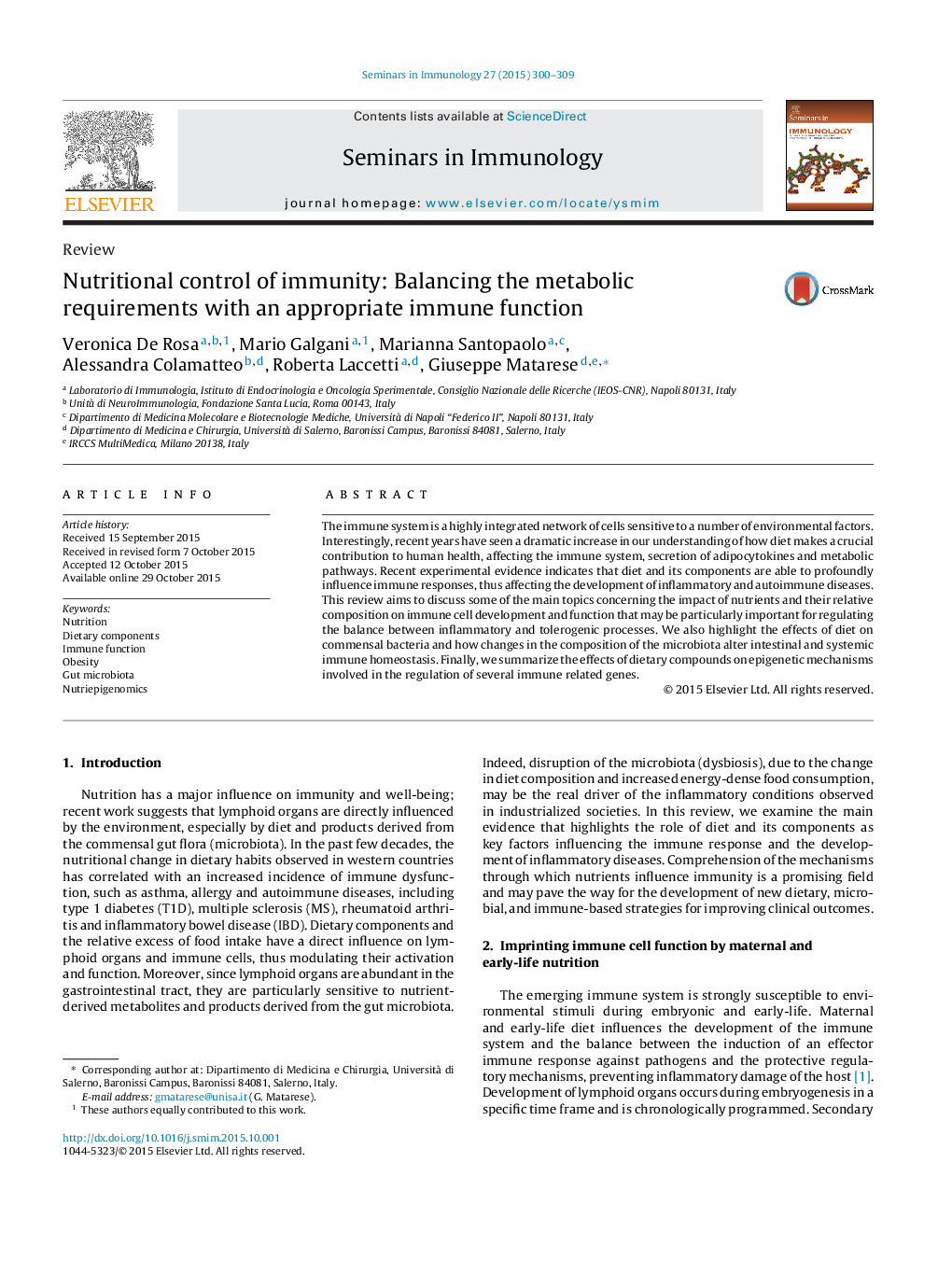| Article ID | Journal | Published Year | Pages | File Type |
|---|---|---|---|---|
| 3391343 | Seminars in Immunology | 2015 | 10 Pages |
•The impact of maternal and early-life nutrition on immune development.•Effects of diet and its components on the immune response.•Malnutrition and obesity differently influence immune cell function: the leptin example.•Intestinal microbiota as modulators of the immune system.•Epigenetically active nutrients: effects on the immune response.
The immune system is a highly integrated network of cells sensitive to a number of environmental factors. Interestingly, recent years have seen a dramatic increase in our understanding of how diet makes a crucial contribution to human health, affecting the immune system, secretion of adipocytokines and metabolic pathways. Recent experimental evidence indicates that diet and its components are able to profoundly influence immune responses, thus affecting the development of inflammatory and autoimmune diseases. This review aims to discuss some of the main topics concerning the impact of nutrients and their relative composition on immune cell development and function that may be particularly important for regulating the balance between inflammatory and tolerogenic processes. We also highlight the effects of diet on commensal bacteria and how changes in the composition of the microbiota alter intestinal and systemic immune homeostasis. Finally, we summarize the effects of dietary compounds on epigenetic mechanisms involved in the regulation of several immune related genes.
